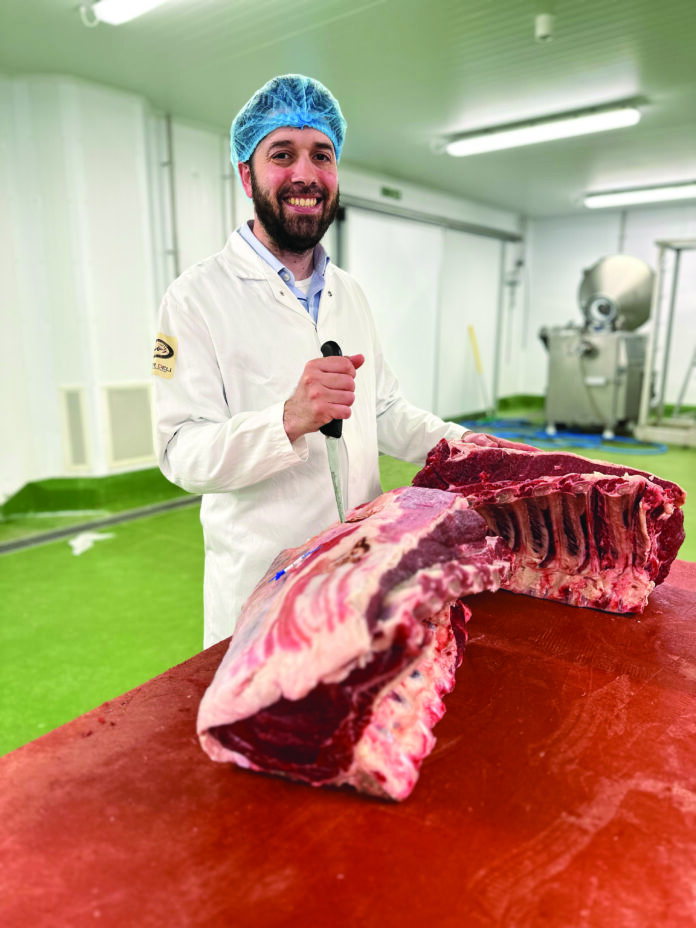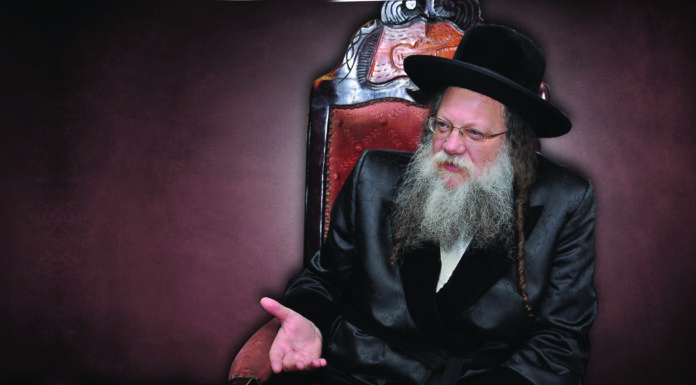American-born Moshe Klein joined his wife’s family business and worked his way up by implementing systems and processes that helped streamline the company. He has also opened new channels of business, introduced new products and added four retail stores.
Moshe was very open as we discussed his personal journey and leadership philosophy (he brought in an external CEO to help him lead the company) as well as how to work with family and the intersection of tzedakah and business. His messages are sure to resonate, especially for those working in family-run businesses. Enjoy! —Nesanel
I was born in Chicago, where I went to the Veitzener Cheder for elementary school. My parents got divorced shortly after I was born. I mostly lived with my mother when I was growing up, and when I was 11, she remarried. As is common for many children with stepparents, it wasn’t easy for me to get used to having a stepfather. He’s a very good person, though, and today we get along well.
“When I was eight years old, my mother decided to move to Israel. Though I spent more consistent time with my mother, I also spent time with my father. He continued living in the US, and I would visit him. He also remarried.
“My father was a CPA by trade, but he worked in a management position in the electronics business. My mother is a computer software engineer.
“When we lived in Israel, we did quite a lot of moving around. We started off in the yishuv Chashmonaim, then we went to Telz-Stone, and then Ramat Beit Shemesh. I began my schooling at a standard Litvish yeshivah where the boys learned all day, but it wasn’t a good fit for me. I switched to a yeshivah high school that had just opened. We lived in Israel until I was in 11th grade, when we moved back to Chicago, and I finished high school in the Skokie Yeshiva.
“I grew up kind of yeshivish, but we were more modern. Although I did feel more comfortable in yeshivish settings.”
“I was entrepreneurial as a kid. When I was living in Israel, I would go back to America every so often to visit my father. I would buy American candy that wasn’t available in Israel, bring it back, and sell it for a profit. In high school in Chicago, I took over a small business that would supply meat for Shabbos to the bachurim in the dorm. I would go to Romanian (a butcher store in Chicago) on Fridays and get cold cuts for the dormers. I managed to get a special discount, as I ordered a nice amount.
“I joined the IDF for three years after yeshivah. I served in Netzach Yehuda (Nachal Chareidi) as a junior commander.
“My first job after the army was a telesales position in Israel. I recognized that I am probably not the best salesman, but I know when I am being sold to. I took the job because the guy recruiting me was so good at selling the job that when I went to quit two days later, I almost stayed because he almost sold me on it again. It was a good lesson on the power of selling.
“After our wedding, my wife and I moved to the United Kingdom, as that’s where she grew up. That was in February 2009. All I knew about her family business was that they had a very large meat company. Originally, my plan was to get my undergraduate degree and then go to medical school in America. But once we were in the UK, I shifted my plans to go to school there and find some part-time work. Well, the school part of the plan never happened. Her father offered me a job in the family business. I readily accepted. Today I run the company.
“The company’s name is Kosher Deli, which is the largest butcher in the UK, providing meat not only to the Jewish community in England but also around the world. It was started by my wife’s great-grandfather, Fritz Frohweins. He was a very frum Jew who managed to escape Germany before the war, in 1937-1938. He was smuggled out by a non-Jewish friend who warned him that the authorities were coming after him. It was Shabbos. His friend ran into shul, got him out, and brought him across the border into Belgium or Holland. From there, he got himself to the UK and brought his family over.
“In Germany, Fritz had been a commodities trader, but he was also a trained butcher because when he was 18, his father had forced him to study with the local ‘master butcher’ for two years. At the time, Germany treated butchery as a trade that had to be studied properly. When Fritz came to the UK, he somehow managed to scrape together enough money to open a shop. Part of the reason he did it was to improve kashrus. He was the first butcher under the Kedassia hechsher, which he helped start. His shop was on Finchley Road, and a Kedassia butcher shop still stands there today.
“Fritz built up the Frohweins company to the point where a whole food chain developed around the business. He even discovered a company that took the undesirable pieces left after shechitah and turned them into pet food, really going from top to bottom.
“After he passed away, his son, my wife’s grandfather, took over. His name was Yehoshua Frohweins; he recently passed away in his late 80s. In 2007, he decided to retire and move to Israel, so his son-in-law, Avraham Bendahan, who is my father-in-law, took over the business. In addition to running Frohweins, my father-in-law acquired Kosher Deli UK, which had been around for about 15 years at that point.
“At its origin, the Frohweins brand served the chareidi community, while the Kosher Deli brand was aimed more towards the less-religious community. We kept the Frohweins brand, but we no longer operate the Frohweins retail stores. People were used to the brand, though, so we continue selling Frohweins products to other retailers. Today, our main operations are focused on the Kosher Deli brand and Kosher Deli retail stores.
“We have two manufacturing sites: one is a slaughterhouse, while the other is what we call a cutting plant. We do cutting, packaging, cooking and manufacturing there. We have seven Kosher Deli retail stores where we sell our produce. On the poultry side, we have our farm with our own animals and shochet. On the beef side, we are simply importers or processors. The shochtim shecht the animals at large farms, and then the animals are brought to us so we can kasher the meat. Whoever is providing the kashrus sends the team of shochtim, and once the animal is shechted and skinned and passes inspection, it is sealed, stamped and transported to us. We start with a huge carcass and go from there. When there is a need for other shochtim, such as when a Lubavitcher requests a Lubavitch shechitah, we have a shochet take care of that.





















